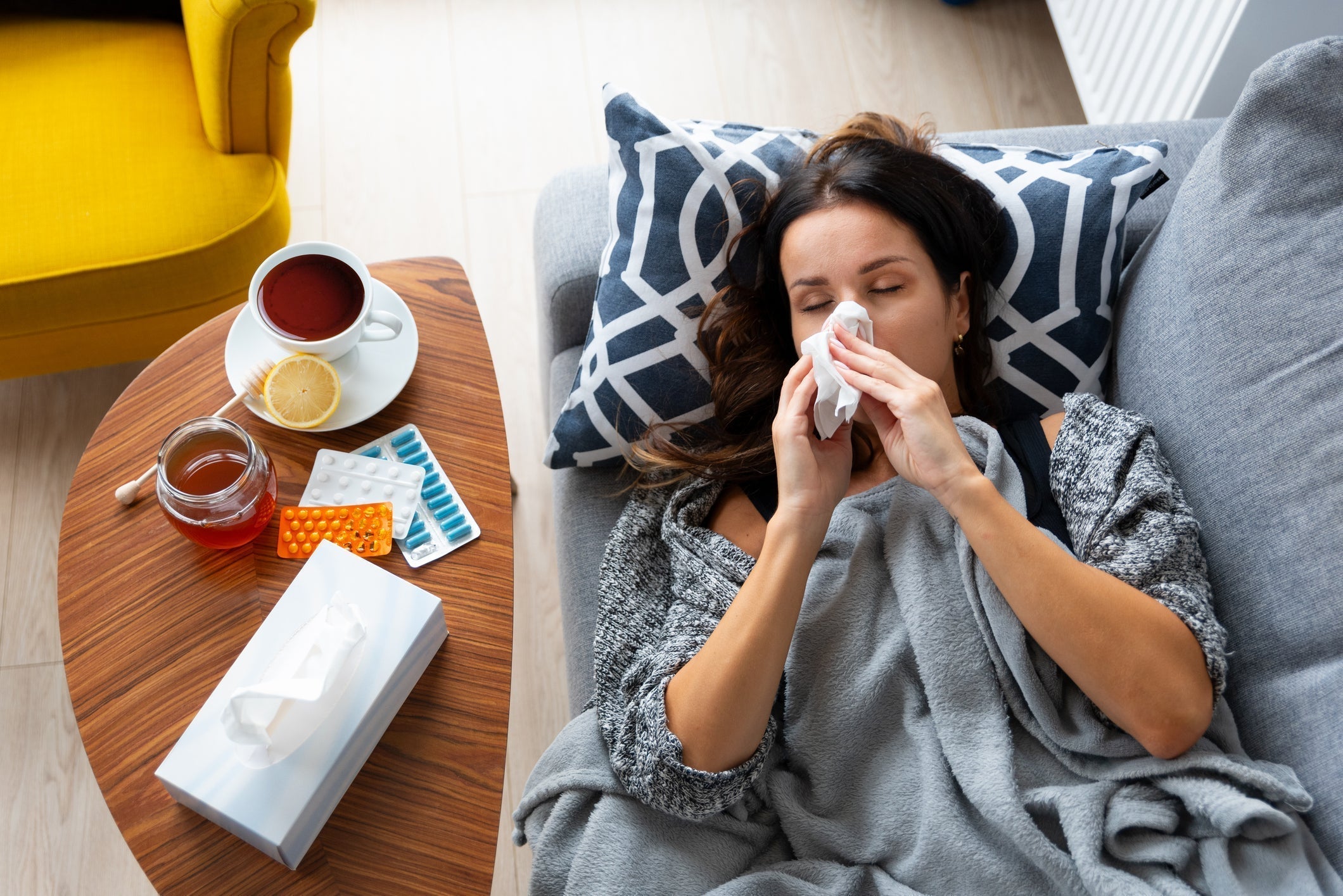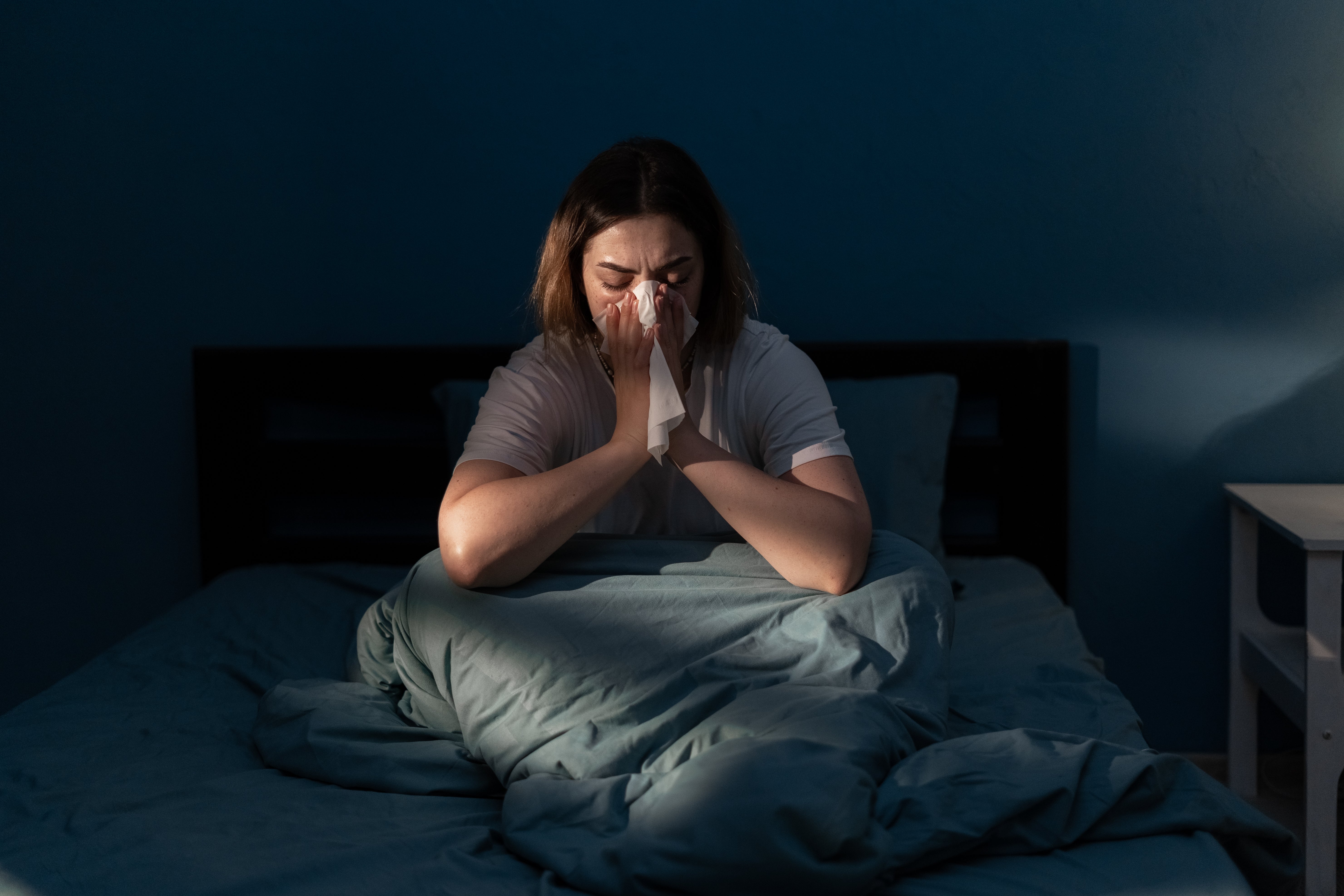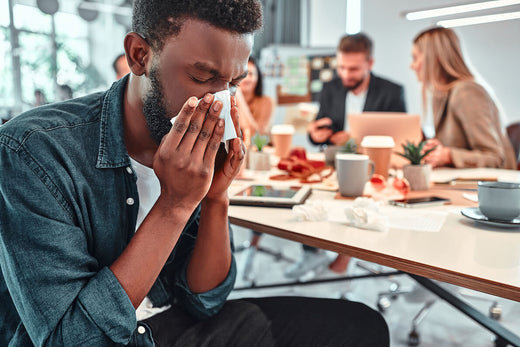
6 Reasons Allergy Medications Are Not Working For You
Sometimes allergy treatments seem to work for a while and then suddenly stop. Find out why this happens and what to do.
Your allergy medications may not be working because of changes in the environment, rebound congestion, or it could be that your allergies have changed.
Sometimes, you may find that your allergy medication does not work well over time because your body does not respond to your medicines the way it previously did. (1) This phenomenon is referred to as drug tolerance.
While there isn't substantial evidence that people commonly develop tolerance to allergy medications (i.e., the medicines stop working), there have been reports of a decreasing effectiveness of some allergy medications. (2)

Possible Reasons Your Allergy Meds Aren't Working (Anymore)
Here are some reasons your allergy medications may not seem as effective or "stop" working:
1. You are taking the wrong medicine
Some allergy medications are more effective for certain allergy symptoms than others. For example, antihistamines appear to be more effective for relieving itching and sneezing, while nasal steroid sprays may be more beneficial for managing nasal congestion and postnasal drip. Consult with your healthcare provider or allergist about the best allergy medicine for your symptoms.
2. You are experiencing rebound congestion
People taking nasal decongestants, such as oxymetazoline and phenylephrine, for longer than three days may experience rebound congestion. (3) That is, instead of getting relief, your allergy symptoms worsen, particularly a stuffy nose, and can take months to go away. This may make you feel like your allergy medicine has stopped working.
3. You are inconsistent with your medications
For allergy medicines taken daily or regularly, such as some antihistamines, allergy drops, or allergy shots, to work effectively, consistent levels must be maintained in your bloodstream. (4) Skipping medications can cause the drug levels to drop below the level at which it was designed to work, making it harder to control symptoms and causing flare-ups.
4. There are changes in your environment
Changes in the environment can affect how you respond to your allergy medicines. For example, a shorter winter may cause trees, flowers and plants to bloom earlier, releasing more pollen and mold spores into the air, which could worsen allergy symptoms. (5) Other environmental factors that can affect how your allergy medicine works include air pollution, drought, and humidity.
5. Your stress levels have increased
Stress can worsen your immune system's response to allergens, which weakens the effects of allergy medicines. (6) This means you may experience less relief than you would if stress weren't part of the equation.
6. Your Allergies May Have Changed
Sometimes, your allergic profile can change, or you can develop new allergies, which may make your current allergy medication seem ineffective. This occurs during an immune system reset such that can happen after extreme illness or exposure to a new virus. In addition, if you are repeatedly exposed to a new allergen without addressing it, your symptoms may become more severe over time. (7)
What to Do If Your Allergy Meds Stop Working
Here are some things to do if your allergy medicines stop working or feel less effective:
Consult your healthcare provider or allergists
The first step in experiencing relief from your allergies is to seek professional help. An allergy specialist can help you identify your unique triggers and find an effective and sustainable treatment plan.
If you are not getting relief from your allergy symptoms, your healthcare provider may recommend switching to a different medication, increasing your dose or taking a drug holiday.
Reduce allergy triggers
Once you know what allergens worsen your symptoms, reduce exposure with simple actions such as:
-
Checking the pollen count before stepping out
-
Closing your windows at night,
-
Washing your bedding once a week
-
Washing your clothes before rewearing them after being outdoors
-
Showering when you get home
-
Using an air purifier
-
Cleaning your house on a regular basis.
You can take our free allergy test to identify potential allergens that may be exacerbating your symptoms.

Rule out other conditions
Some allergy-like symptoms may not be caused by allergies but could instead indicate an underlying health condition. For example, sneezing and nasal congestion can also occur due to non-allergic reasons, such as colds caused by a virus or a mechanical blockage. Talk to your healthcare provider to rule out other potential causes of your symptoms.
Take your medicines consistently
Avoid skipping or missing doses of your allergy medication to ensure your treatment works effectively. If you experience severe side effects and need to discontinue, consult your allergist, and they will adjust your current medications to something more tolerable or adjust your dose.
Reduce stress
Managing stress through good sleep, rest, practicing meditation and mindfulness, and other stress-relieving strategies can also help your immune system operate at full capacity and fight allergens effectively.
Try immunotherapy
Unlike other allergy treatments that just treat the symptoms, allergy immunotherapy addresses the root cause of your allergies.
For long-term relief, your doctor may recommend immunotherapy, either through allergy shots or allergy drops, to retrain your immune system to react less to allergens.
At Quello, our team of doctors and allergy experts offers personalized allergy drop treatment, allowing you to live an allergy-free life. From start to finish, everything can be done from the comfort of your own home—allergy testing, drop delivery, and daily treatments.
Get Convenient, Lasting Allergy Relief With Quello Allergy Drops
Are you tired of taking new medications every time allergy season arrives? Or are your current allergy medications just not providing the relief you hope for?
With Quello's personalized approach to allergy treatment using allergy drops, you can experience lasting relief from allergies—no shots, no pills, no office visits, no wasted time.
We've helped thousands of people overcome their allergies for good. If you're ready to enjoy a symptom-free life with a treatment that suits your lifestyle, give our free allergy test kit a try.

Overcome your allergies at home with our doctor-led therapy.
Get started with our free allergy test kitGet Started with no test needed.
Overcome your allergies at home with our doctor-led therapy.
Get started with our free allergy test kitGet Started with no test needed.




